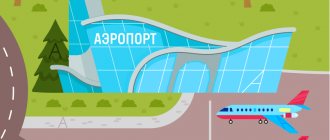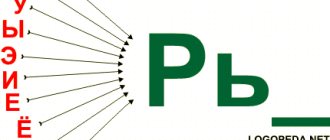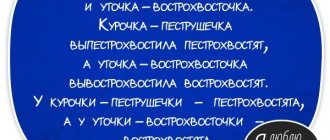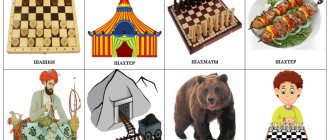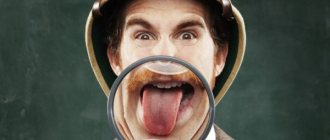For Beginners - Elementary
If you have just begun to learn a foreign language, read texts that you have already read in Russian. Pay attention to short stories or fairy tales. You can also listen to adapted books in English: in this case, you can train your hearing aid and hone your listening comprehension of text. Where can I find texts for beginners? Take a look at the British Council website where you can read the same text written for different language levels. You can find out your level here.
Finding somewhere affordable to live in Britain is difficult. Some parts of the country are cheaper than others, of course, but the cost of renting a home is horrendous, especially in London and the South. Normally, the only answer is to share a house or a flat: you get a room of your own, but you have to share the kitchen and bathroom. In cities like Oxford and Cambridge, where rooms are scarce, will prices make your eyes water: more than £500 a month. In London, they're even higher – not far off £700.
Oxford already seemed expensive when I lived there, and that was almost 40 years ago. When I started work after university, my room cost £40 a month – almost 15 per cent of my salary. With today's rents in Oxford, you'd need to earn £40,000 a year if you didn't want to spend more than 15 per cent on your room. But when you finish university, starting salaries are usually between £20,000 and £30,000.
Apart from the cost, shared flats and houses are often in poor condition. Landlords are slow to spend their profits on repairs. I was fairly lucky with mine. The house I lived in was scruffy, but the landlord took action when needed — like the time the bathroom ceiling fell in. I'd just run a bath and had returned to my room to get something, when I heard a loud crash. I went back to find the bathtub full of wet plaster. I had the ceiling repaired and took the bill to my landlord.
Show translation
Show translation
Finding affordable housing in the UK is challenging.
Of course, some parts of the country are cheaper than others, but the cost of renting a house is appalling, especially in London and the south. Usually the only solution is to share a house or apartment: you get your own room, but you have to share the kitchen or bathroom. In cities like Oxford or Cambridge, where rooms are scarce, the prices will make your eyes water: over £500 a month. In London, prices are even higher - around £700. Oxford seemed more expensive when I lived there, which was almost 40 years ago. When I started working at university, my room cost £40 a month - almost 15% of my salary. With today's rent prices, you need to earn 40,000 a year unless you want to spend more than 15% of your income on your room. But when you graduate from university, starting salaries typically range from £20,000 to £30,000. Apart from the cost of housing, shared rooms or houses are often in poor conditions. Owners are reluctant to spend their income on repairs. I was lucky with my owner. The house I lived in was in a state of disrepair, but the owner got involved when needed - like when the ceiling collapsed. I wanted to run a bath and went into my room to get something when I heard a loud crash. I returned to find the bathroom full of plaster. The roof was repaired and I took the bill to my landlord.
For continuing students (Pre-intermediate - Intermediate)
Reading English texts is not only an opportunity to enrich yourself with new knowledge, but also to gain an understanding of the structure of an English sentence, slang expressions and modern speech in general. After all, it often happens that while studying a language at school, we have no idea that some words are already used in completely different meanings, while others are even born before our eyes and replenish the English dictionary with new lexical units that did not previously exist. Scientists note that in 5-7 years such professions will appear that we know nothing about today. Below you can read the literary text. Pay attention to sentence structure and vocabulary.
Are you ready for this, Amy?” David asked his daughter. The girl finished tying the laces of her old walking boots, looked up and nodded slowly. “I think so.” They walked along a lane out of the village until they reached a gently winding path that led to the river. After crossing a wooden bridge, they followed the line of the riverbank, where tall trees kept the hot sun off their heads. David listened to the chatter of the fast-flowing river. The last time they had come this way, he had listened to a chattering stream of words from his daughter, who had told him about endless adventures and the scandals of friends and classmates. Today, as they had crossed the bridge, a little gray and yellow bird had caught her eye. Amy's face had brightened, and the start of a story almost reached her lips, but then she remained silent. The path became steeper, leaving the river and splitting into two parts as they came closer to Kinder Reservoir. Looking at his map, David pointed to the route that climbed above the reservoir. They followed it to the start of a narrow valley, where another steep path ran beside a fast-moving stream. As they climbed higher, Amy began to notice the changing landscape. The stream was a series of little waterfalls that fell through green ferns and purple heather.
Show translation
Show translation
"Are you ready for this, Amy?" – David asked his daughter. The girl finished tying the laces of her old shoes, looked up and nodded slowly. "I think yes". They walked along the narrow path out of the village until they reached a calm winding path leading to the river. After crossing the wooden bridge, they walked along the river bank where tall trees kept the hot sun above their heads. David heard the sound of a fast-flowing river. The last time they came here, he heard a constant stream of words from his daughter, who told him about the endless adventures and scandals of friends and classmates. Today, when they crossed the bridge, she noticed a small gray and yellow bird. Amy's face filled with joy, and she almost began her story, but said nothing. The path steepened, leaving the river behind and splitting in two as they approached Kinder Reservoir. Looking at his map, David pointed to a route that skirted the reservoir. They followed it to the beginning of a narrow valley, where another steep path ran alongside a fast stream. As they climbed higher, Amy began to notice the changing landscape. The stream was part of small waterfalls that fell through green ferns and purple heather.
A selection of advanced dictations for students in grades 10-11
Extraordinary daysVoropaev entered Bucharest with a wound that had not yet healed, received in the battle for Chisinau. The day was bright and perhaps a little windy. He flew into the city in a tank with scouts and then was left alone. Strictly speaking, he should have been in the hospital, but is it possible to lie down on the day of entering a dazzling white city seething with excitement? He didn’t sit down until late at night, but kept wandering the streets, engaging in conversations, explaining something, or simply hugging someone without words, and his Chisinau wound healed, as if healed by a magic potion.
And the next wound, accidentally received after Bucharest, although it was lighter than the previous one, healed inexplicably for a long time, almost until Sofia itself.
But when he, leaning on a stick, got out of the headquarters bus onto the square in the center of the Bulgarian capital and, without waiting for someone to hug him, began to hug and kiss everyone who fell into his arms, something pinched in the wound, and she froze . He could barely stand on his feet then, his head was spinning, and his fingers were cold - he was so tired during the day, for he spoke for hours in the squares, in the barracks, and even from the pulpit of the church, where he was carried in his arms. He talked about Russia and the Slavs as if he were at least a thousand years old.
***
There was silence; all that could be heard was the snorting and chewing of the horses and the snoring of the sleeping people. Somewhere a lapwing was crying and occasionally the squeak of snipes could be heard, flying in to see if the uninvited guests had left.
Egorushka, suffocating from the heat, which was especially felt after eating, ran to the sedge and from there looked around the area. He saw the same thing that he had seen before noon: the plain, the hills, the sky, the purple distance. Only the hills were closer, and there was no mill, which remained far back. Having nothing else to do, Yegorushka caught the violinist in the mud, brought him in his fist to his ear and listened for a long time as he played his violin. When he got tired of the music, he chased a crowd of yellow butterflies that were flying to the sedge for a watering hole, and without noticing, he found himself again near the chaise.
Suddenly, quiet singing was heard. The song, quiet, drawn-out and mournful, similar to crying and barely perceptible to the ear, was heard from the right, now from the left, now from above, now from under the ground, as if an invisible spirit was hovering over the steppe and singing. Yegorushka looked around and did not understand where this strange song came from. Then, when he listened, it began to seem to him that the grass was singing. In her song, she, half-dead, already dead, without words, but plaintively and sincerely convinced someone that she was not to blame for anything, that the sun burned her in vain; she assured that she passionately wanted to live, that she was still young and would be beautiful if it were not for the heat and drought. There was no guilt, but she still asked someone for forgiveness and swore that she was in unbearable pain, sad and sorry for herself. (According to A.P. Chekhov) (241 words)
***
Often in the fall I would closely watch the falling leaves to catch that imperceptible split second when a leaf leaves the branch and begins to fall to the ground. I've read in old books about the sound of falling leaves, but I've never heard that sound. The rustle of leaves in the air seemed as implausible to me as stories about hearing grass sprouting in the spring.
I was, of course, wrong. Time was needed so that the ear, dulled by the grinding of city streets, could rest and catch the very pure and precise sounds of the autumn land.
There are autumn nights, deaf and silent, when calmness stands over the black forested region.
It was such a night. The lantern illuminated the well, the old maple under the fence and the nasturtium bush tousled by the wind.
I looked at the maple and saw how a red leaf carefully and slowly separated from the branch, shuddered, stopped in the air for an instant and began to fall obliquely at my feet, slightly rustling and swaying. For the first time I heard the rustling of a falling leaf - a vague sound, like a child's whisper.
Dangerous profession
In pursuit of interesting shots, photographers and filmmakers often cross the line of reasonable risk.
It is not dangerous, but it is almost impossible to photograph wolves in nature. It is dangerous to photograph lions, and very dangerous to photograph tigers. It is impossible to say in advance how a bear will behave - this is a strong and, contrary to the general idea, a very active animal. In the Caucasus, I broke a well-known rule: I climbed a mountain where a mother bear and her cubs were grazing. The calculation was that it was autumn and the mother no longer guarded her offspring so jealously. But I was wrong... When the camera clicked, capturing the two babies, the mother, dozing somewhere nearby, rushed towards me like a torpedo. I understood: under no circumstances should I run - the beast would rush after me. On the spot, the remaining man puzzled the bear: she suddenly braked sharply and, looking intently at me, rushed after the baby.
When photographing animals, you must, firstly, know their habits and, secondly, not get into trouble. All animals, with the possible exception of the connecting rod bears, tend to avoid meeting people. Analyzing all the misfortunes, you see: man’s carelessness provoked the attack of the beast.
Telephoto lenses have long been invented to photograph animals without frightening them or risking an attack, most often a forced one. In addition, unafraid animals that are not aware of your presence behave naturally. Most of the expressive shots are obtained with knowledge and patience, an understanding of the distance, which is unwise and even dangerous to violate.
Path to the lake
The morning dawn is gradually flaring up. Soon a ray of sun will touch the bare treetops in autumn and gild the shining mirror of the lake. And nearby there is a smaller lake, of a bizarre shape and color: the water in it is not blue, not green, not dark, but brownish. They say that this specific shade is explained by the peculiarities of the composition of the local soil, the layer of which covers the lake bottom. Both of these lakes are united under the name Borovye Lakes, as the old residents of these places dubbed them in ancient times. And to the southeast of Borovye Lakes there are gigantic swamps. These are also former lakes that have been overgrown for decades.
At this early hour of a wonderful golden autumn, we are moving towards a lake with a very unpleasant name - Pognomu Lake. We got up a long time ago, even before dawn, and began to get ready for the road. On the advice of the watchman who sheltered us, we took waterproof raincoats, hunting boots, prepared food for the road so as not to waste time lighting a fire, and set off.
We made our way to the lake for two hours, trying to find convenient approaches. At the cost of supernatural efforts, we overcame the thickets of some tenacious and thorny plant, then half-rotten slums, and an island appeared ahead. Before we reached the wooded hillock, we fell into a thicket of lily of the valley, and its regular leaves, as if aligned by an unknown master who had given them a geometrically precise shape, rustled in front of our faces.
In these thickets we indulged in peace for half an hour. You raise your head, and above you the tops of the pines rustle, resting against the pale blue sky, along which not heavy, but summer-like, semi-airy, fidgety clouds move. Having rested among the lilies of the valley, we again began to look for the mysterious lake. Located somewhere nearby, it was hidden from us by thick growth of grass. (247 words)
***
The supernatural efforts made by the hero to overcome various kinds of road obstacles were not in vain: the visit promised to be by no means uninteresting.
As soon as Chichikov, bending down, entered the dark, wide entryway, built somehow, a cold air immediately blew across him, as if from a cellar. From the hallway he found himself in a room, also dark, with lowered curtains, slightly illuminated by light, not descending from the ceiling, but rising to the ceiling from under a wide crack located at the bottom of the door. Having opened this door, he finally found himself in the light and was overly amazed at the chaos that appeared. It seemed as if the floors were being washed in the house and all the things were brought here and piled up haphazardly. On one table there was even a broken chair and there was a clock with a stopped pendulum, to which the spider had already attached a bizarre web. There also stood a cabinet leaning sideways against the wall with antique silver that had almost disappeared under a layer of dust, decanters and excellent Chinese porcelain acquired God knows when. On the bureau, which was once lined with a lovely mother-of-pearl mosaic, which had already fallen out in places and left behind only yellow grooves filled with glue, lay a great variety of all sorts of things: a bunch of pieces of paper covered with small handwriting, covered with a green marble press with a handle in the shape of an egg on top, some an old book bound in leather with a red edge, a lemon, all dried up, no bigger than a hazelnut, a broken arm of a chair that had long since fallen apart, a glass with some unattractive liquid and three flies covered with a letter, a piece of a rag picked up somewhere and two feathers, stained with ink. To top off the strange interior, several paintings were hung very crampedly and awkwardly on the walls.
(According to N.V. Gogol)
***
I remember with inexplicable joy my childhood years in an old landowner’s house in central Russia.
Quiet, clear summer dawn. The first ray of sun through the loosely closed shutters gilds the tiled stove, freshly painted floors, recently painted walls, hung with pictures on themes from children's fairy tales. What colors shimmering in the sun played here! Against a blue background, lilac princesses came to life, a pink prince took off his sword, rushing to the aid of his beloved, trees glowed blue in the winter frost, and a spring lily of the valley blossomed nearby. And outside the window a lovely summer day is gaining strength.
The dewy freshness of early peony flowers, light and delicate, rushes through the old window, which is wide open.
The low house, hunched over, goes away, grows into the ground, and above it the late lilacs are still blooming wildly, as if they are in a hurry to cover up its squalor with its white-lilac luxury.
Along the narrow wooden steps of the balcony, also rotten from time and swaying under our feet, we go down to swim to the small river located near the house.
After swimming, we lie down to sunbathe not far from the thickets of coastal reeds. A minute or two later, touching a branch of a dense hazel tree growing on the right, closer to the sandy slope, a magpie-babbler lands on a tree. What does she not talk about! A ringing chirping rushes towards her, and, growing, gradually the polyphonic hubbub of birds fills the garden, brightly colored in summer.
After enjoying the swim, we head back. The glass door leading from the terrace is slightly open. On the table in a simple clay pot is a bouquet of skillfully selected, freshly picked, not yet blooming flowers, and next to it, on a snow-white linen napkin, is a plate of honey, over which bright golden toiling bees hover with an even hum.
How easy it is to breathe in the early morning! How long can I remember this feeling of happiness that you experience only in childhood!
Greatest Shrine
Thanks to the efforts of a dear friend, I received from Russia a small Karelian birch box filled with earth. I belong to people who love things, are not ashamed of feelings and are not afraid of crooked smiles. In youth, this is forgivable and understandable: in youth, we want to be self-confident, reasonable and cruel - to rarely respond to insults, to control our face, to restrain the trembling of our hearts. But the burden of years wins, and strict consistency of feelings no longer seems the best and most important. Now, as I am, I am ready and able to kneel in front of a box with Russian soil and say out loud, without fear of prying ears: “I love you, the land that gave birth to me, and I recognize you as my greatest shrine.”
And no skeptical philosophy, no smart cosmopolitanism will make me ashamed of my sensitivity, because I am guided by love, and it is not subordinate to reason and calculation.
The soil in the box had dried out and turned into lumps of brown dust. I sprinkle it carefully and carefully so as not to waste it on the table, and I think that of all human things, the earth has always been both the most beloved and closest.
For you are dust, and to dust you will return.
(According to M.A. Osorgin)
Rose
Early in the morning, as soon as dawn broke, I returned to familiar places along untrodden paths. In the distance, unclear and foggy, I already imagined a picture of my native village. Walking hastily along the uncut grass, I imagined how I would approach my house, rickety from antiquity, but still welcoming and dear. I wanted to quickly see the street I knew from childhood, the old well, our front garden with jasmine and rose bushes.
Immersed in my memories, I quietly approached the outskirts and, surprised, stopped at the beginning of the street. At the very edge of the village stood a dilapidated house that had not changed at all since I left here. All these years, for many years, no matter where fate took me, no matter how far I was from these places, I always invariably carried in my heart the image of my home, as a memory of happiness and spring...
Our house! It is, as before, surrounded by greenery. True, there is more vegetation here. In the center of the front garden, a large rose bush grew, on which a delicate rose bloomed. The flower garden is neglected, weeds are intertwined in the flowerbeds and paths that have grown into the ground, not cleared by anyone and not covered with sand for a long time. The wooden lattice, far from new, was completely peeling, dried out and fell apart.
Nettles occupied an entire corner of the flower garden, as if they served as a backdrop for a delicate pale pink flower. But next to the nettle there was a rose, and nothing else.
The rose blossomed on a fine May morning; when she opened her petals, the morning dew left a few tears on them, in which the sun played. Rose was definitely crying. But everything around was so beautiful, so clean and clear on this spring morning...
***
Behind the large house there was an old garden, already wild, drowned out by weeds and bushes. I walked along the terrace, still strong and beautiful; through the glass door one could see a room with a parquet floor, which must have been the living room; an antique piano, and on the walls there are engravings in wide mahogany frames - and nothing more. All that remained of the former flower beds were peonies and poppies, which raised their white and bright red heads from the grass; along the paths, stretching out and interfering with each other, grew young maples and elms, already plucked by cows. It was dense, and the garden seemed impenetrable, but this was only near the house, where poplars, pines and old linden trees of the same age still stood, surviving from the previous alleys, and further behind them the garden was cleared for haymaking, and there was no more hovering, no cobwebs were getting into your mouth or eyes, the breeze was blowing; The further you went, the more spacious it became, and already there were cherries, plums, spreading apple trees and pears growing in the open space so tall that you couldn’t even believe that they were pears. This part of the garden was rented by our city traders, and it was guarded from thieves and starlings by a foolish man who lived in a hut.
The garden, thinning out more and more, turning into a real meadow, descended to the river, overgrown with green reeds and willows; near the mill dam there was a stretch, deep and fishy, a small mill with a thatched roof was making an angry noise, frogs were croaking furiously. On the water, smooth as a mirror, circles occasionally moved, and the river lilies trembled, disturbed by the cheerful fish. The quiet blue reach beckoned, promising coolness and peace.
Zoryanka
It happens that in the forest of some golden-red pine tree a twig will fall out of the white pine body. A year or two will pass, and this hole will be inspected by the dawn - a small bird exactly the same color as the bark of a pine tree. This bird will drag feathers, hay, fluff, twigs into an empty twig, build itself a warm nest, jump out onto a branch and sing. And so the bird begins spring.
After some time, or even right there, after the bird, a hunter comes and stops by a tree, waiting for the evening dawn.
But then the song thrush, from some height on the hill, the first to see signs of dawn, whistled its signal. The dawn bird responded to him, flew out of the nest and, jumping from branch to branch higher and higher, from there, from above, she also saw the dawn and responded to the song thrush’s signal with her own signal. The hunter, of course, heard the thrush's signal and saw how the dawn bird flew out, he even noticed that the dawn dawn, a small bird, opened its beak, but he simply did not hear that it made a sound: the voice of the little bird did not reach the ground.
The birds were already praising the dawn above, but the man standing below could not see the dawn. The time has come - dawn rose over the forest, the hunter saw: high on a twig, a bird would open its beak, then close it. This is the dawn singing, the dawn is praising the dawn, but the song cannot be heard. The hunter still understands in his own way that the bird is glorifying the dawn, and why he doesn’t hear the song is because it sings to glorify the dawn, and not to glorify itself in front of people.
And so we believe that as soon as a person begins to glorify the dawn, and not the dawn itself, then the spring of the person himself begins. All our true amateur hunters, from the smallest and simplest person to the largest, breathe only to glorify spring. And how many such good people are there in the world, and none of them knows anything good about themselves, and everyone will get used to him that no one will even know how good he is, that he only exists in the world to glorify the dawn and begin your spring as a human being.
***
The dawn was breaking, it was getting fresh, and it was time for me to get ready for the road. Having passed through dense reed thickets, making my way through a thicket of bent willows, I went out to the bank of the small river and quickly found my flat-bottomed boat. Before leaving, I checked the contents of my canvas bag. Everything was in place: a can of pork stew, smoked and stewed fish, a loaf of black bread, condensed milk, a skein of strong twine and many other things needed on the road.
Having pulled away from the shore, I let go of the oars, and the boat quietly drifted downstream. Three hours later, around the bend in the river, the gilded domes of the church appeared clearly visible against the background of lead clouds on the horizon, but, according to my calculations, it was still not close to the city.
After walking a few steps along the cobbled street, I decided to repair my boots, or boots, that had been wet for a long time. The shoemaker was a dashing man of gypsy appearance. There was something unusually attractive in the precise movements of his muscular arms.
Having satisfied my hunger in the nearest cafe, where I had beetroot borscht, liver with stewed potatoes and borzh at my service, I went to wander around the city. My attention was drawn to the plank stage, where multi-colored flags fluttered. The juggler had already finished his performance and bowed. He was replaced by a freckled dancer with reddish bangs and a yellow silk fan in her hands. After dancing some kind of dance that resembled tap dancing, she gave way to a clown in a star-shaped tights. But the poor fellow was devoid of talent and was not at all funny with his antics and jumps.
Having walked around almost the entire town in half an hour, I settled down for the night on the river bank, covering myself with an old waterproof raincoat.
Intermediate - Upper-intermediate
When people ask me how I learned to speak German, I tell them it was simple: I met a German man at the Oktoberfest, married him, and stayed in Munich for 20 years. But there's a bit of a backstory, too. In 1973, my friend Sally and I decided to quit our jobs and travel through Europe. We boarded a plane in early September, determined to stay abroad as long as possible — stretching our money by hitchhiking and staying in youth hostels. Over the next eight months, we covered a lot of ground, from Greece and Turkey to Finland, managing to limit our costs to an average of $5 a day. It all started in Luxembourg, when we walked to the edge of town and stuck out our thumbs. It wasn't long before a group of US soldiers on motorcycles stopped. They were on their way to a wine festival on the Moselle River and were thrilled to have female companionship.
As 24-year-old American girls with backpacks, Sally and I rarely had to wait long for a ride. And although we often couldn't understand the drivers, it didn't matter. Wherever they were going was fine with us. Other than our plans to visit the Oktoberfest in Munich, we had absolutely no itinerary. The advantage of this easygoing lifestyle was that we visited many villages that were far off the beaten path.
Show translation
Show translation
When people ask me how I learned to speak German, I tell them it was simple: I met a German at Oktoberfest, married him and stayed in Munich for 20 years. But there is also a backstory. In 1973, my friend Sally and I decided to quit our jobs and travel around Europe. At the beginning of September we boarded a plane, determined to stay abroad as long as possible, saving our money by hitchhiking and staying in youth hostels. Over the next eight months we traveled from Greece and Turkey to Finland, intending to cut our expenses to an average of $5 a day. It all started in Luxembourg when we found ourselves outside the city and gave the thumbs up. It didn't take long before a group of American soldiers on motorcycles stopped. They were going to a wine festival on the Moselle River and were delighted with the company of women. As 24-year-old American girls with backpacks, Sally and I rarely had to wait for a ride. And although we often couldn't understand the drivers, it didn't matter. Wherever they went, we were fine. Apart from our plans to visit Oktoberfest in Munich, we had absolutely no itinerary. The benefit of this relaxed lifestyle was that we visited many villages that were located well off the beaten track.
For advanced (Advanced)
Recently, I've been flying quite a lot - for the usual reasons, like holidays, weddings, milestone birthdays and, sadly, the odd funeral. Since I live in Perth, Western Australia – a very isolated state capital – a flight to the east coast means at least four hours in the air for me. To put that into a European perspective, a flight to Sydney is about the same as flying from Dublin to Istanbul. Then there's the time difference of two to three hours, so that a whole day is lost crossing the country. When I'm sky-high, I'm captive to what I call “cardboard-box cuisine”. Recent experiences with our major carriers Qantas and Virgin suggest that there may be more flavor in the box itself than its contents.
Sure, Australian airlines have a long tradition of offering free food and drinks, including beer and wine, especially on longer flights. And flying is relatively inexpensive in economy class. Even on the good airlines, I can usually get to and from Sydney for less than A$ 700. Budget carriers will cost you half of that. Back to airline food, though. On a flight to Perth some weeks ago, I was given a “Chinese chicken salad” for my evening meal. In the box, I found a mound of dry purple cabbage and a dozen small pieces of equally dry chicken. There was no dressing, so the only parts of this meal I could eat were two cracker biscuits and a piece of cheese that came on the side. I washed them down with a tiny bottle of red wine and thought, “This meal isn't free: it's worthless.” Some time later, I wandered down to the flight attendants' quarters at the back of the plane to see if I could get some more cheese and crackers and another small bottle of wine. The staff were helpful, but what surprised me were the meals they were eating, including a steaming plate of grilled pork medallions in cream sauce with rice and fresh vegetables.
Show translation
Show translation
I've been flying quite a lot lately - for the usual reasons such as holidays, weddings, anniversaries and, unfortunately, funerals. Since I live in Perth, Western Australia, a very remote state capital, flying to the east coast means at least four hours in the air for me. If we draw parallels with Europe, a flight to Sydney takes about the same time as from Dublin to Istanbul. In addition, there is a time difference of two or three hours, so a whole day is lost when crossing the country. When I'm high in the sky, I become a prisoner of what I call "cardboard box food." Recent experiences with major food supplier Qantas and Virgin suggest there may be more odor in the box than what's contained inside. Of course, Australian airlines have a long tradition of serving free food and drink, including beer and wine, especially on long flights. Flying in economy class is relatively inexpensive. Even flying on good airlines, I can get there from Sydney for under AUD$700. Budget carriers will cost half as much. However, let's get back to the food on board. On a flight to Perth a few weeks ago, I was served “Chinese chicken salad” for dinner. In the box I found a pile of dry cauliflower and a dozen small pieces of equally dry chicken. There was no sauce, so all I could eat were two crackers and a piece of cheese. I washed it down with a small bottle of red wine and thought, “This food isn’t free, but it’s disgusting.” After a while, I walked to the back of the plane to see the flight attendants to make sure I could ask for some more cheese, crackers, and a small bottle of wine. The staff were helpful, but what surprised me most was the food they ate, including steaming plates of grilled pork medallions in a creamy sauce with rice and fresh vegetables.
Abridged books
Beginners learning English should start working with texts as soon as possible. Firstly, this type of activity helps to remember not just words, but entire expressions. Secondly, by working with texts, you can quickly begin to compose complete sentences, based on the experience gained.
How do you know if a particular text is right for you? If the number of unfamiliar words reaches 15-20%, then you will be able to master this text. If you constantly have to turn to the dictionary for translation, then it is better to leave this text until better times, so as not to completely lose the desire to learn English.
Pay attention to the adapted books in English, the texts in which are distributed at different levels of complexity [look at Ozon.ru]. The easiest ones use between 200 and 350 words, while pre-intermediate or intermediate levels use an average of 3,500 words. Note that knowing this amount of vocabulary, you will be able to freely communicate on any topic, provided that you also know basic grammar.
LiveInternetLiveInternet
Annen työpäivä
Anne on sihteeri. Hän on työssä eräässä toimistossa keskustassa. Toimisto sijaitsee uudessavalkoisessa kerrostalossa torin lähellä. Toimisto on auki kello 9-16. Anne on töissänoin 8 tuntia joka päivä. Tanaan on maanantai. Anne saapuu toimistoon. Toiset työtoverit ovat jo kaikki siellä. Anne on vahan myöhässä (kello on jo 9.05), mutta se ei haittaa. Työtoverit pyytävät Annea kahville. Anne juo kaksi kuppia kahvia. Sitten hän menee työhuoneeseen ja avaa ikkunat. Kadulta kuuluu kovaa melua. Anne päättää sulkea ikkunat. Sitten hän katsoo, mitä on postissa. Annen suurella työpöydällä on paljon tavaraa: kalenteri, kynäkotelo, kansio, nitoja, monta niittiä ja klemmaria, taskulaskin, muistilehtiö ja kuulakärkikynä. Pöydällä on myös laskukone, mutta tavallisesti Anne ei käytä sitä. Hän käyttää taskulaskinta. Anne kirjoittaa kaikki kirjeet ja pöytäkirjat tietokoneella. Tietokoneeseen kuuluu keskusyksikko, näppäimistö, näyttö, hiiri. Tietokoneen vieressä on valokuva Annen poikaystävästä. Pöydän edessä on tuoli, ja pöydän alla on roskakori. Anne panee kaikki roskat roskakoriin. Pöydän vieressä, oikealla puolella, on salku. Pöydän takana on hylly. Hyllyllä on monta mappia. Hyllyn viressä on iso kasvi. Anne kastelee vähän sitä. Tänään on kaksi kokousta. Sen jälkeen Anne puhuu puhelimessa monen ihmisen kanssa. Iltapäivällä hän laatii pöytäkirjat ja keskustekee johtajan kanssa monesta tärkeästä asiasta. Kello 18.00 työpäivä päättyy. Pitkän ja kiireisen työpäivän jälkeen Anne on vähän väsynyt. Kuitenkin hän on hyvällä tuulella. Hän päättää lähteä vielä uimahalliin.
Anna's working day
Anna is a secretary. She works at one enterprise in the center. The office is located in a new white building near the square. The office is open from 9 to 16. Anna works about 8 hours every day. Today is Monday. Anna comes to the office. The other employees are all here already. Anna was a little late (9.05 on the clock), but without damage. Colleagues ask Anna for coffee. Anna drinks 2 cups of coffee. Then she goes to the workroom and opens the windows. Loud noise is heard from the street. Anna closes the windows. Then she looks at what came from the mail. Anna's large work desk has a lot of things on it: a calendar, a pen, a folder, a stapler, a lot of staples and paper clips, a calculator, a notepad and a ballpoint pen. There is also a adding machine on the table, but Anna usually doesn't use it. She uses a pocket calculator. Anna writes all letters and protocols on the computer. A computer consists of a central unit, keyboard, display, and mouse. Next to the computer is a photo of Anna's friend. There is a chair next to the table, and a trash can under the table. Anna puts all the trash in the trash can. Next to the table, on the right, is a briefcase. There is a shelf behind the table. There are a lot of papers on the shelf. Next to the shelf is a plant. Anna waters it sometimes. Today there are 2 meetings. After them, Anna will talk on the phone with many people. In the evening she will draw up minutes and discuss many important matters with the director. At 18:00 the working day will end. After a long and hasty day of work, Anna was a little tired. However, she goes to get some good air. She decides to go to the pool again.
Series of messages “Finnish language”:
Part 1 - Text about a new apartment Part 2 - A very difficult text for me with a lot of new words. About the workplace Part 3 - Shopping (Finnish text with my translation)
Parallel texts
What is the point of reading parallel texts? On one page the text is written in English and divided into small paragraphs, on the other page everything is organized in a similar way, but at the same time you are reading the work in Russian. This reading method is suitable for those who are starting to learn a foreign language, but want to develop their skills as quickly as possible. Remember that when reading parallel texts, it is not always possible to find the corresponding translation of a word and phrase on a page with Russian text, so highlight unfamiliar words for yourself and double-check their meaning in the dictionary. It is interesting that Heinrich Schliemann first read the text in his native language, and only after that he took on the unadapted text in English.
This method has both pros and cons, so the choice is up to you. It is better to use this method at the initial stage, until you reach the intermediate level.
Difficult text to read. Finding errors in the article
Hello, friends! This article was written for authors who have their own websites on Word Press. If you have written an article for a blog, do not rush to publish it. It is necessary to carefully read everything from beginning to end and carefully correct the spelling. In this case, the Yoast SEO plugin comes to the rescue. Read more about it in the article on the blog.
The written material should not only be interesting, but also useful for readers. It is quite easy to check the readability of the text. Where you post articles, you need to find a readability button under the article. As you know, this extension began to apply serious requirements for content. Difficult to read text is now corrected using the following parameters:
- Complexity of sentences. To fully understand the information, short phrases are used. This option allows readers to understand everything that the author wrote. Sentences that are too long are quite difficult to read. In the process of writing an article, it is better to delete such phrases.
- Transitional words. In an article, you can write a transitional word that denotes a direct relationship to the text: enumerating phrases, indicating reasons for something, expressiveness, and so on. Examples of transition words in articles: (as a result, it seems, finally, in addition, because, therefore).
- Spelling mistakes. When writing texts, this problem appears constantly. Various services on the RuNet can correct different types of erroneous words. Including improving the quality of good text.
The plugin suggests using the listed requirements for articles. If you do not follow these instructions, you may receive a “Difficult to Read” rating. Such an assessment will interfere with the promotion of the site. This is what the Yoast SEO plugin says. If you wish, you can go to the plugin developers page and read for yourself what the requirements are for the text and transition words. You can view the developer’s page and by following the links provided. These pages are shown in the pictures below.
